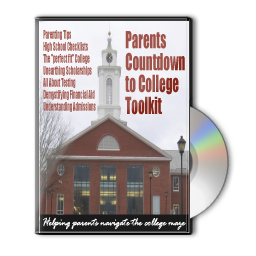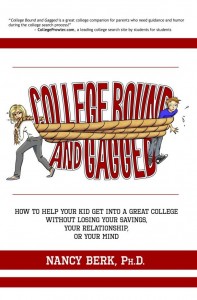When your student is applying to college, we tend to want to be mind readers and wonder what are those admissions officers using to weigh your student’s college application. Parliament Tutors has been interviewing admissions officers at various colleges across the country and is happy to share one of these interviews with my readers.
********************
A special thanks to Robert Barkley for participating our Admissions Spotlight Series. Mr. Barkley is the director of undergraduate admissions at Clemson University. Joseph Fernandez from ParliamentTutors conducted this interview.
What do you consider the most significant parts of an application, the parts which applicants should prepare the most carefully?
The most important part of a student’s application file is the high school record/transcript. The preparation there begins at the beginning of the high school career. As to the application form itself, it is important that all information be as accurate and complete as possible. Especially in these days of online applications, the student is doing the initial data entry efforts for what could be their collegiate academic record. Something as simple as one single digit in a zip code can affect the receipt of an admissions decision.
What advice can you offer students in regards to their personal statements? Perhaps you can offer some shining examples that you have seen in the past.
I read a lot of appeal statements from students who’ve been denied admission. Many of them focus on grades and the circumstances that affected the grades. Rarely do they focus on what they learned (despite the grades), which is what you’re really trying to determine when evaluating an application.
Is there anything you frequently see on an application that you hope to never see again?
On the section for international students…where we ask for visa information…I hope I never see a student provide us with credit card numbers and other personal information.
What common pitfalls should applicants be careful to avoid?
Applicants need to remember that the application is the beginning of a dialogue with the college/university. The information provided is going to be read by adults. Students need to be careful not to be over-casual in their approach, presenting information as might be shared with their friends.
Are there any myths about the application process which you would like to dispel?
College Admissions is NOT “The Great SAT Contest”, nor is it “Rush Week” where we sit around and select our friends and people that we like.
What advice would you give to an applicant with below-average test scores but significant extracurricular experience?
Let’s hope that the information on the transcript shows exceptional performance in the classroom. Otherwise, the test scores would appear to verify the grades, and show an over-emphasis on out-of-class activities.
Do you frequently have to turn away applicants whom you wish you could admit? If so, what could those applicants do to be admitted?
They need to realize that many students graduate annually as transfer students. If they are set on GRADUATING from a specific college or university, they need to explore transfer options that can put them on track towards a degree.
How much faith do you have in the ability of the SAT to predict success at in college?
The SAT and ACT are excellent tools for helping to predict college success, but should not be used as the sole indicator. Other factors (most importantly the high school transcript, grades, GPA, strength of curriculum, etc) must be figured into the decision as well.
What do you look for in a recommendation letter?
Honesty and a true sense of perspective.
Joseph Fernandez is an SATTutor with Parliament Tutors, a NewYorktutoring and test preparation service.
 I have been harping about your teen’s online reputation for the last year or so. Last week I posted an infographic “Google Yourself Challenge” and encouraged you to have your teen do this simple exercise. Why? Important people are looking at their online profile (Twitter, Facebook, LinkedIn, Instagram, Google)–people who could have a huge affect on your teen’s future.
I have been harping about your teen’s online reputation for the last year or so. Last week I posted an infographic “Google Yourself Challenge” and encouraged you to have your teen do this simple exercise. Why? Important people are looking at their online profile (Twitter, Facebook, LinkedIn, Instagram, Google)–people who could have a huge affect on your teen’s future.







